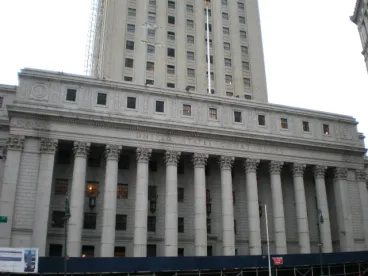Recently, the Department of Justice (“DOJ”) intervened in a qui tam whistleblower suit in the US District Court for the Southern District of new York, which involves Continuum Health Partners and several Mount Sinai-related hospitals. United States ex. Rel. Kane v. Continuum Health Partners, Inc. et al, (Civil Action, No. 11-2325(ER)). While DOJ intervention in whistleblower cases is not unusual, this case is significant because the DOJ’s complaint specifically alleges that the defendants failed to return Medicaid overpayments within 60 days, as required by the Affordable Care Act (“ACA”). The case is one of the first to explore the issues and interpret the requirements of the 60-Day Rule.

Section 6402(d) of the ACA requires “overpayment” to be reported, explained and returned within 60 days after the date on which it is identified or any corresponding cost report was due, if applicable. The term “overpayment” is defined as any funds that a person receives or retains under the Medicare or Medicaid programs to which that person is not entitled. Retention of an identified overpayment is now considered an “obligation” under the FCA, meaning that the government can pursue civil penalties against those who retain such overpayments as “reverse false claims.” The Centers for Medicare and Medicaid Services (“CMS”) issued a Proposed Rule for the 60-day requirement in 2012, but to date, those regulations have not been finalized. See 77 Fed. Reg. 32, 9179-9187 (Feb. 16, 2012). The Proposed Rule indicates that retaining payments past the 60 days can lead to civil monetary penalties between $5,000 to $11,000 per violation, liability for three times the claim’s value (i.e., treble damages), attorney’s fees and/or exclusion from federal health care programs.
In the pending case, the defendant hospitals were billing New York Medicaid as a secondary payor for Medicaid managed care patients enrolled with Healthfirst. The hospitals provided covered services to the enrollees and were obligated to accept Healthfirst’s reimbursement as payment in full. New York law prohibits the hospitals from billing New York Medicaid as a secondary insurer. The erroneous claims were not the fault of the providers, but instead were the result of coding errors by Healthfirst.
After the New York Office of the State Comptroller identified a small number of claims erroneously paid by Medicaid, a subsequent internal investigation was conducted. Robert Kane, an employee in the revenue department, was asked to investigate the issue. Kane determined that potentially 900 claims representing payments in excess of $1 million may have been wrongly submitted, and paid, by New York Medicaid. According to the allegations, he reported his findings in February 2011 and was subsequently terminated.
The hospitals did begin repayment, eventually repaying the full amount. The key issue, however, is whether the hospitals fraudulently delayed the repayments. The DOJ’s position is that the overpayments were identified in February 2011 (when Kane notified executives of the problem), but that repayment was not made until March 2013 and only after the government issued a Civil Investigative Demand.
The ambiguity concerning the “identification” of overpayments is a source of much industry confusion, especially because the proposed definition has not been finalized. The Proposed Rule states that an overpayment has been “identified” for purposes of the ACA when “the person has actual knowledge of the existence of the overpayment or acts in reckless disregard or deliberate indifference of the overpayment.” Id. at 9180, 9187.
In light of Kane, it is evident that the DOJ is serious about not only enforcing the repayment rules under the FCA, but also pursuant to the ACA 60-Day Rule. Despite a lack of formalized guidance from CMS, providers must take great care to “identify” potential overpayments promptly and with thorough investigation. And, often whether an overpayment actually exists can be a legal question. Regardless, extreme care must be taken when overpayment is suspected.



 />i
/>i

